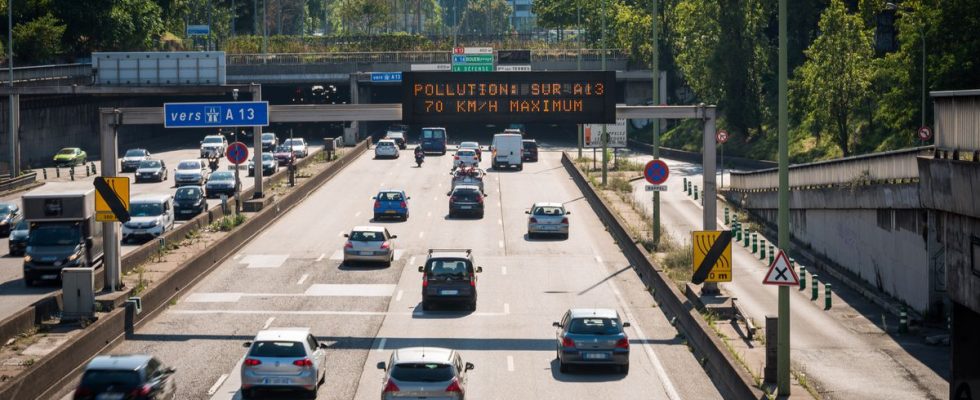Paris spends the second on the ring road. While discussions remain to come with the police headquarters, there is no longer any doubt that the speed will be limited to 50 km/h on the Paris ring road from the second half of 2024, with a lane dedicated to carpooling and public transport. .
It is the Olympic Games which will serve as a springboard for this last strong measure for many Ile-de-France residents. “We will use the legacy of the Paris 2024 Olympic Games to perpetuate this reserved lane. Without them, it would undoubtedly have taken fifteen years of cultural battle to achieve this,” explains Emmanuel Grégoire, Anne Hidalgo’s first deputy.
“In the weeks following the end of the Olympic Games”
Announced several months ago, this new lane will be put in place “in the weeks following the end of the Games” (the Paralympic Games end on September 8, 2024) and reserved for cars driving at least two people, for collective public transport, to people with disabilities (even alone), taxis (even empty), VTCs (while racing) and emergency and police vehicles.
“The goal is not to reduce the number of trips, estimated at just over a million per day on the ring road, but the number of vehicles. A 1,000 kg car to transport 80 kg is absurd,” commented David Belliard, deputy mayor of Paris in charge of transport.
Reduce pollution and noise pollution
This measure mainly aims to reduce pollution and noise pollution, particularly at night for the 500,000 people who live in the immediate vicinity of this axis, often in working-class neighborhoods, according to Paris City Hall.
“There is no reason for this to impact travel times, it will be a few tens of seconds, at most a few additional minutes,” said David Belliard.
The ring road, one of the main urban axes in Europe, is used every day by 1.2 million vehicles, the majority from Ile-de-France, and 80% of which travel with their driver as the sole occupant.
The end of “autosolism”
The new speed limit aims to make traffic flow more smoothly on this very congested route, by encouraging Ile-de-France residents to avoid “self-driving” and to use public transport. It will also have the advantage, according to the town hall, of making the new route safer. reserved which will inexorably provoke new crossings.
“The ring road is no longer intended to be an urban highway,” underlined David Belliard.
The maximum speed authorized on this 35-kilometer road belt which has surrounded the capital since 1973, had already increased from 90 km/h to 80 in 1993, then to 70 km/h in 2014. Since 2021, the speed has also been limited at 30 km/h on most streets in the capital.
There remains the agreement of the State, which leaves little doubt
Paris City Hall has also called on the Region and the mayors of neighboring municipalities to build a “coherent strategy” to avoid the transfer of traffic to the A86 and the Francilienne, which encircle Paris beyond the ring road, and to develop carpooling. .
If the Paris ring road is a municipal road, therefore under the responsibility and financing of the City of Paris, the agreement of the Paris police prefect, Laurent Nunez, under the responsibility of the Ministry of the Interior, remains to be acquired. “I have no doubt that the government is committed to our side, that the health of our fellow citizens is more important than a form of fascination with the car (…) It is always the same people who drink glasses at the edge of the ring road,” said underlined Emmanuel Grégoire.
During rush hours and in case of traffic jams
Concretely, the “carpooling” lane would be active from Monday to Friday from 7 a.m. to 10:30 a.m., and from 4 p.m. to 8:00 p.m. It can also be activated in the event of an accident or traffic jams. Illuminated diamonds indicating channel activation are being tested.
Violators will be fined via video cameras, from the period of the Olympic Games, without a testing period. As for circulation between the lines of two-wheelers, strongly requested by biker associations, it will be authorized.
In partnership with Make.org, the Paris Town Hall is organizing a major public debate, the “Parisian Dialogues”, on the subject “Growing up well in Paris”. To participate, simply make your suggestions on the following form:

